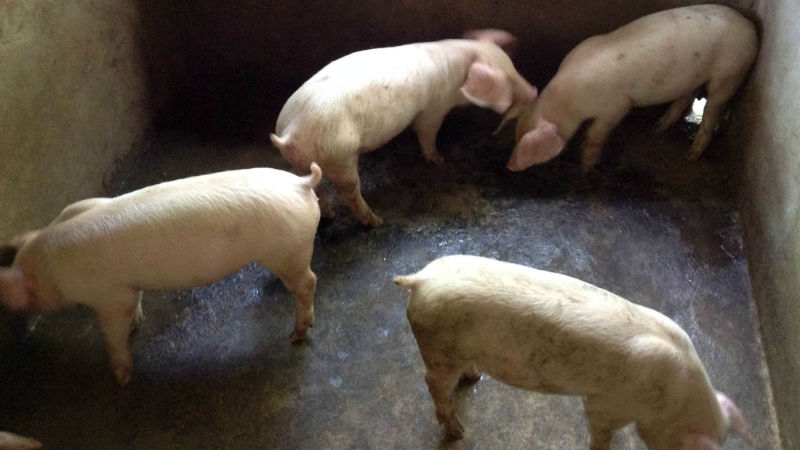Combating heat stress in swine
 Pigs, much like humans, are prone to suffer from heat stress.
Pigs, much like humans, are prone to suffer from heat stress.
This is especially true for a tropical country such as the Philippines, where temperatures could go as high as 38 degrees Celsius in the summer. And during this period, many swine farm owners often face potential losses in their operations since pigs—whose normal body temperatures are already naturally high due to the metabolic heat that their bodies produce—easily fall prey to heat.
Previous data and studies have already shown that heat-stressed pigs often lose their appetite, have low performance, and become more prone to illnesses thus affecting their growth. Consequently, the business of the swine raisers is also adversely affected.
More specifically, heat-stressed animals are said to suffer reduced intestinal integrity and barrier function, increased systemic endotoxemia, inflammation problems, reduced lean tissue accretion, and lower fertility rates, among others.
Scientist Dr. Sarah Pearce, in her 2014 graduate thesis for the Iowa State University, explained that “heat stress (HS) negatively impacts animal well-being, performance and product quality (i.e. carcass). In addition, HS also jeopardizes human health, work productivity and performance. The global economic impact of HS to animal agriculture is immense (St-Pierre et al., 2003) and this value is likely to increase with the elevated threat of global warming and increased incidence of severe weather events (EPA, 2014).”
“For swine production, despite recent advances in heat abatement strategies, HS continues to cause increased days on feed, health problems, reduced growth, and reduced reproductive performance, and if severe enough, leads to mortality,” Dr. Pearce’s paper read.
Aware of the problems faced by swine raisers, trusted animal healthcare brand Univet Nutrition & Animal Healthcare Co. (Unahco) and AKEY, the leader in swine nutrition in America, have introduced another high-quality product to help swine raisers better deal with heat stress among pigs.
Pigrolac Premium with Advanced Cooling System (ACS) is a key product that can help swine raisers combat the ill effects of heat stress among pigs.
“Our research shows that the right balance between proteins and amino acids ensures metabolic efficiency. And this is what we have shared with our long-time partner here in the Philippines, Unahco,” said AKEY vice president Dr. Ken L. Bryant.
The ACS, which has been incorporated in Unahco’s flagship Pigrolac Premium Hog Feeds and Pigrolac Mama Proto, is expected to help local hog raisers maximize animal growth.
“This exclusive nutrition technology offered by Pigrolac should be very helpful to our local hog raisers to prevent swine heat stress, which is usually characterized by animals that are panting out of breath, refusing to eat, or sows refusing to nurse their young because their teats are inflamed due to intense heat,” explained Unahco marketing director Clint Escondo.
Pigrolac Premium also has Pigrobuilders which aid the growth and overall well-being of the pigs.